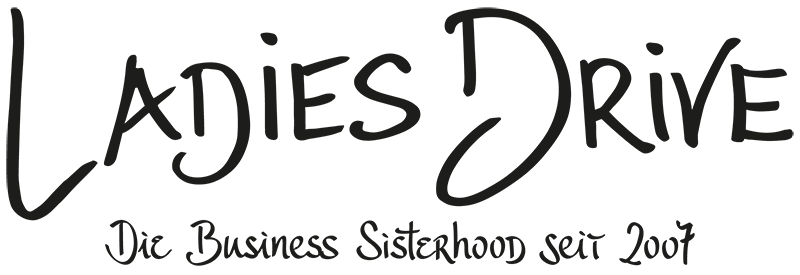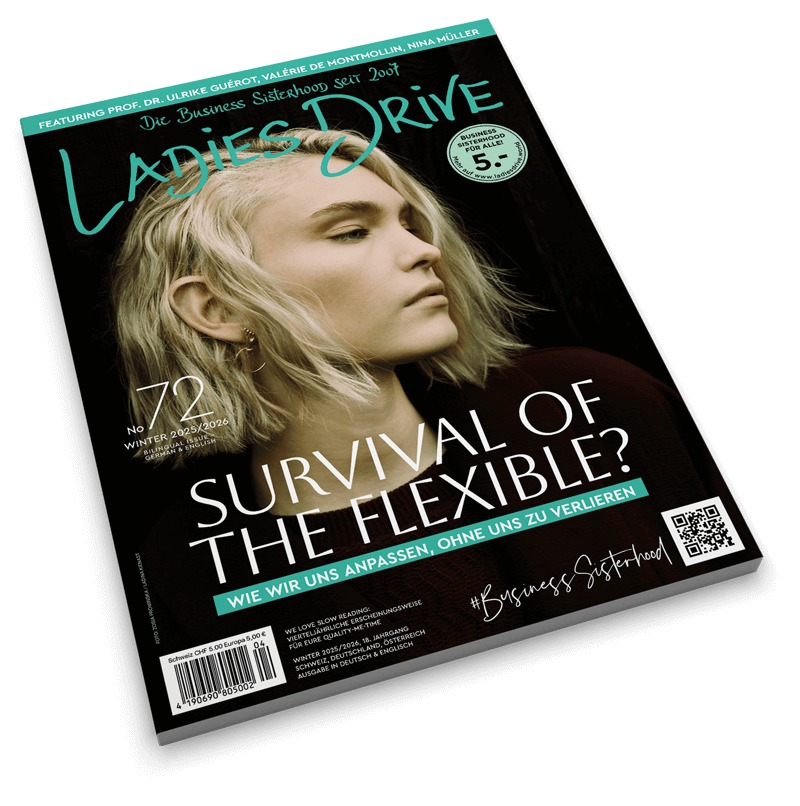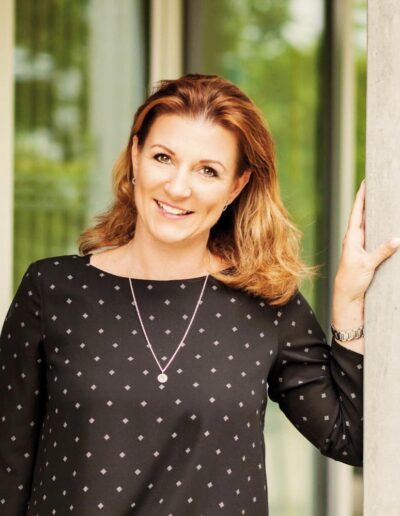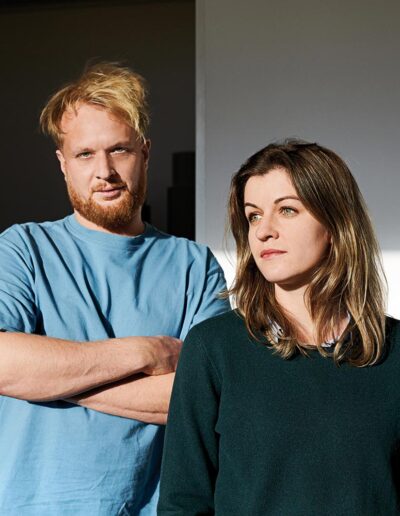Nicole Hinrichs is Associate Professor of Strategy and Entrepreneurship and Associate Dean of Degree Programmes at EHL Hospitality Business School. She is also a member of the faculty of the EMBA at EPFL, Lausanne and a Visiting Reader at Imperial College London. She gained academic experience at Columbia Business School (USA), Wharton Business School (USA), and the Swiss Federal Institute of Technology Zurich, ETH (Switzerland). And received her doctorate summa cum laude from the University of St.Gallen after working for several years as a strategy consultant and in multiple positions in the banking sector.
Carole Ackermann: Nicole, do you remember your first experience with entrepreneurship?
Nicole Hinrichs: My initial exposure to entrepreneurship was through my grandmother, who owned multiple F&B retail outlets specialising in meat. Witnessing her adept management skills following my grandfather’s passing left a lasting impression on me, igniting my interest in the intricacies of business ownership and operations.
You initially worked in roles in Consulting and Banking before Innovation, Transformation and Entrepreneurship became your research focus. What attracted you to this combination?
From an early stage, I’ve been fascinated by numbers but equally intrigued by the broader context surrounding them. Pursuing Finance and Real Estate as my majors during my MBA, complemented by a minor in strategic management, allowed me to delve into both numerical analysis and strategic thinking. Both, I would claim, are central to driving strategic changes surrounding innovation and transformational change.
Does this knowledge still help you today?
Sure, this dual exposure empowered me to appreciate both the significance and potency of numbers and the narrative they construct within a strategic framework. I would say to this day it has coined my thinking in every way.
You were affiliated faculty at Wharton School and a research associate at Columbia Business School. Has your experience in the US influenced your career?
My experience in the US has profoundly shaped my perspective. I’ve had the privilege of attending classes led by Nobel Prize laureates, collaborated with individuals who have pioneered entire schools of thought, and forged enduring friendships that enhance the enjoyment of my work. These connections have not only enriched my personal journey but have also contributed significantly to the fulfilment and success of the projects I am involved in today.
As a behavioural economist you specialised in cognitive and social psychology drivers of transformational change. What motivated you to make a career in academic institutions, which are rather known as very traditional organisations with little change?
What can I say: “I like the difficult cases” – just joking! But truthfully, what captivated me about staying in academia was the sense of a broader impact I could achieve. In my previous roles, while I dealt with challenging cases, they often lacked an exploratory dimension; the focus was primarily on solving immediate issues rather than delving into underlying complexities. The academic environment, however, offers a unique advantage – it fosters a culture of genuine curiosity where individuals are not only driven to solve specific cases but are also committed to comprehensively understanding the broader underlying principles and logic.
You recently accepted, in addition to the professorship, a leadership position as Associate Dean. Can you give us your view of an educator’s role if knowledge is becoming a commodity?
As knowledge becomes increasingly commodified, educators must evolve into facilitators of critical thinking, creativity, and adaptability. Their role shifts from being mere disseminators of information to supporters who inspire curiosity, foster intellectual agility, and equip students with the skills to navigate and apply knowledge in dynamic contexts. Further, educators must emphasise the development of soft skills such as communication, collaboration, and problem-solving, which are indispensable in an era where the acquisition of knowledge alone is insufficient to succeed.
Universities must prepare their students for the future. Can you briefly explain the role of internal and external stakeholders to foster an ecosystem?
My doctoral supervisor always said – rigour needs to meet relevance. To this day this mantra has guided my understanding where the best learning for students will be achieved. How does this translate into the environment we need to provide: internally, faculty, administrators, and staff play a crucial role in designing interdisciplinary programs and fostering a culture of critical thinking. Externally, partnerships with industry, government, and community organisations provide opportunities for real-world engagement, mentorship, and access to resources, ensuring students gain practical skills and insights relevant to their future careers.
Which other topics are currently most interesting for you, and do they match your passion for cooking?
I am a huge foodie and I am currently privileged to collaborate with my esteemed colleague, Dr Marc Stierand, on an SNF grant focused on exploring the development of a distinctive identity within the Michelin Star culinary world. Our research delves into how successful chefs navigate the delicate balance between conforming to institutional norms while maintaining their individuality to establish a unique culinary identity that allows them to transform their industry.
The theme of this issue is I am not superwoman. With cooking as your passion, you almost fit the typical cliché. Why not?
I’m truly captivated by the theme of this issue – it resonates deeply with me. In a world that often glorifies the image of the superwoman who effortlessly juggles a myriad of responsibilities while flawlessly executing each task, it can be tempting to conform to this stereotype, especially when your passion aligns with the traditional gender roles, such as cooking. However, the truth is, I am not superwoman, and I don’t aspire to be.
What is important to you instead?
Authenticity is paramount in leadership and in life. Pretending to be someone we’re not only leads to feelings of inadequacy, but it also undermines the trust and connection we seek to build with others. When we embrace our authentic selves, flaws and all, we not only free ourselves from the burden of unrealistic expectations but also inspire others to do the same.
And what does that mean for you personally?
Personally, I consider myself incredibly fortunate to have a dependable husband, whose unwavering support allows me the freedom to pursue my ambitions. My child’s understanding nature adds a layer of grace to the chaos of balancing work and family. Moreover, I’m blessed with a supportive community that stands by me, offering assistance and camaraderie when needed. So, in sum, the perceived superwoman is much more of a collective success than an individual one.
The professor community is very male. Also, in top management women are still rare. Do you see enough female students interested in an academic or hospitality career?
Certainly, while I would like to see a much higher diversity in top management ranks as well as academia, there is a growing interest among female students in pursuing top positions, whether this is in academia or hospitality. Efforts to promote diversity and inclusion, coupled with initiatives to empower and support women in these fields, are gradually attracting more female talent. However, continued advocacy, mentorship, and opportunities for leadership development are crucial to not only cultivate but retain female representation in these domains.
What do you do when you’re on your own?
I like to read up on recent publications by authors that I find inspiring (e.g., Dan Ariely) and invest in my knowledge on wine. My husband recently gifted me the WSET Level 2, a wine certification course, for my birthday.

















